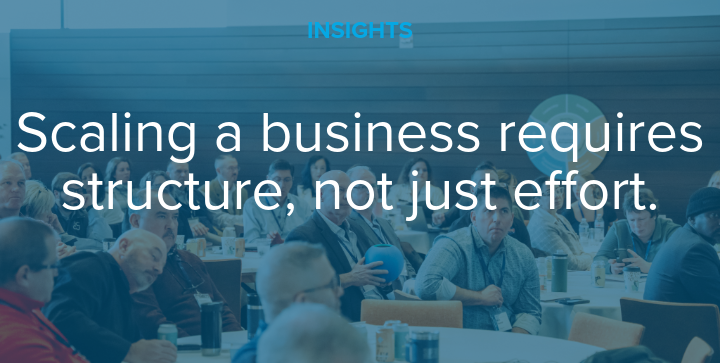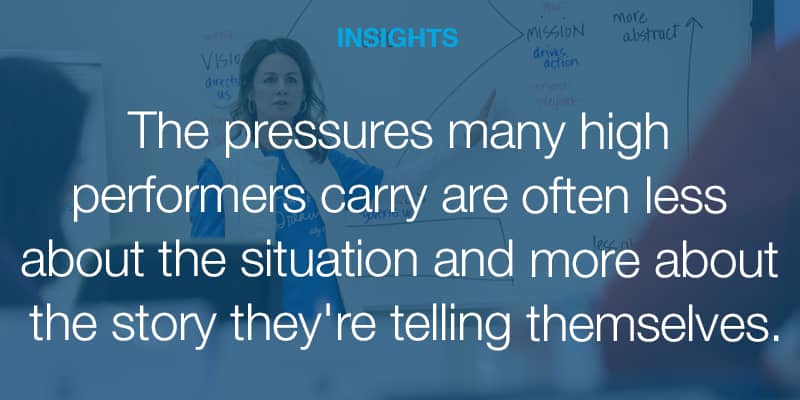During times when it feels like difference is standing in the way of dialogue, lean into listening to better understand and communicate with each other.
At Aileron, we practice conscious leadership. It’s an approach to leadership that blends heightened awareness, suspended judgment, and intentionality to empower us to bring our best selves to every role, situation, and conversation. Conscious leadership is a powerful tool to enhance every area of our lives, including work relationships, romantic partnerships, parenthood and more. But it can be especially transformative during times when difference seems to get in the way of connection.
Conscious leadership tells us that we all have different views of the world; those views are shaped by our own unique values and beliefs, experiences, pasts, cultural and social expectations, and more. Those influences come together to create a lens that’s as unique as a thumbprint. They color how we experience life and have the potential to limit our ability to see others’ perspectives; after all, when you’ve experienced something one way for all your life, it can be challenging to understand how someone else experienced that same thing differently.
To counteract this limiting view of the world and others’ experiences in it, we rely on having conscious conversations – conversations that aim to overcome differences and create connections. In these conversations, the aim is simple; we aren’t out to change people’s minds or define right and wrong. We’re simply aiming for, “I hear and understand you.” That small act of empathy creates connection and quickly de-escalates emotional conversations, especially when we feel divided.
The results of that simple statement – “I hear where you’re coming from” – are transformative: Once we find common ground, we can begin to build solutions to problems that are bigger than ourselves. And the path to getting started is easy. Listening is the most powerful tool in our toolbox for building understanding of people and perspectives that are different from our own.
As you consider approaching conversations differently in the coming weeks, here are some simple techniques you can try to lean into your consciousness and have more productive dialogue:
- Reframe the aim: At the start of the conversation, ask yourself: how can I approach this situation with curiosity instead of judgment?
- Listen without responding: Usually when we listen to someone, only a portion of our attention goes to their words. At the same time, we’re busy formulating how we’re going to respond, which detracts from our ability to truly hear what the other person is saying. Try fighting the urge to calculate a response until they’re fully finished with their thoughts.
- Be extra mindful: Remember that most of what we communicate is nonverbal. Try to be aware of not just what you say, but how you say it. Do your body language, facial expressions, and hand gestures create trust or tension?
- Acknowledge what you’re hearing — even when you don’t agree: Acknowledging someone’s feelings doesn’t always mean that you agree with what they’re saying, but it can feel that way. Many people avoid acknowledging perspectives that they disagree with. However, when you acknowledge, what you’re really saying is “I hear you,” not “I feel the same way.” Catch yourself when you hesitate to recognize how someone else is feeling and remember, just because you empathize doesn’t mean you concur. What you’ll see is that acknowledging has a powerful way of mellowing the emotional charge of a situation, which is especially helpful when you have two conflicting perspectives.
- Complete this Aileron acknowledging activity: Because acknowledging is such a powerful bridge to creating shared understanding, we’ve created a tool to help you work on this skill. Simply click here to download this simple worksheet, which includes language you can use to acknowledge someone’s feelings, as well as a partner listening activity to help guide a conversation with someone in your life.
We believe seeking to understand is the pathway to connection, appreciation, and togetherness, and right now we’re leaning into our conscious leadership training and listening skills to have better conversations about how we can strengthen our tribe, be better, and show up for our communities. While these skills are certainly helpful during times of national conversation, they’re applicable to nearly every discussion you’ll have; you can apply these tools in a disagreement with your teenager, an argument with your spouse, or a tense moment at the Thanksgiving dinner table.
As we all move into the future with a desire to grow, be better, and understand each other more, we look forward to continuing to be part of the discussion and sharing tools and resources that help us bridge the gap from “me and you” to “us.”




